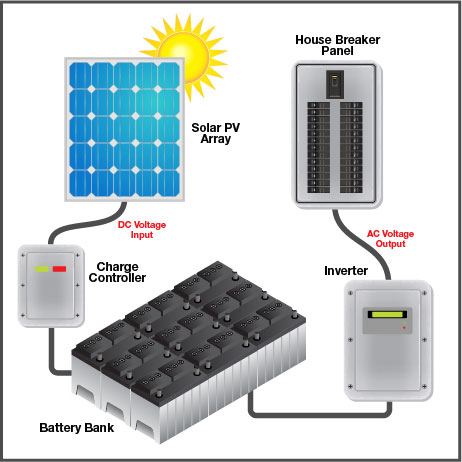In the dynamic landscape of modern living, the role of household power systems has evolved significantly. No longer confined to traditional grids, homeowners are now exploring diverse and sustainable solutions to meet their energy needs. This blog explores the latest advancements in household power system, highlighting the benefits of renewable energy sources, smart technologies, and the growing trend towards energy independence.
The Rise of Renewable Energy:Traditional power systems heavily rely on fossil fuels, contributing to environmental issues and dependency on finite resources. Enter renewable energy sources – solar, wind, and hydropower. These sustainable alternatives are gaining momentum as cost-effective and eco-friendly options for household power generation.Solar panels, in particular, have become a popular choice for homeowners seeking to harness the power of the sun. With advancements in technology, solar installations have become more efficient, affordable, and aesthetically pleasing. This not only reduces the carbon footprint but also offers potential savings on electricity bills in the long run.Wind turbines and hydropower systems are also making strides in providing clean energy solutions for households. These options allow homeowners to tap into nature’s forces to generate power, contributing to a more sustainable and resilient power infrastructure.Smart Technologies for Energy Efficiency:The integration of smart technologies has revolutionized household power systems. Smart meters, thermostats, and energy management systems empower homeowners to monitor and control their energy consumption in real-time. This not only enhances efficiency but also helps in optimizing power usage, resulting in cost savings.Battery Storage Solutions:One of the challenges with renewable energy sources is their intermittency – the sun doesn’t shine 24/7, and the wind doesn’t blow consistently. Battery storage solutions address this issue by storing excess energy generated during peak times for later use. Homeowners can now store surplus energy during the day and use it during periods of low renewable generation or high demand, providing a more reliable and consistent power supply.Energy Independence and Resilience:The desire for energy independence is prompting many homeowners to invest in household power systems that allow them to generate, store, and manage their own energy. This not only provides a sense of control but also increases resilience in the face of power outages or disruptions in the main grid.


Leave a Reply